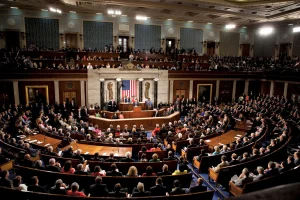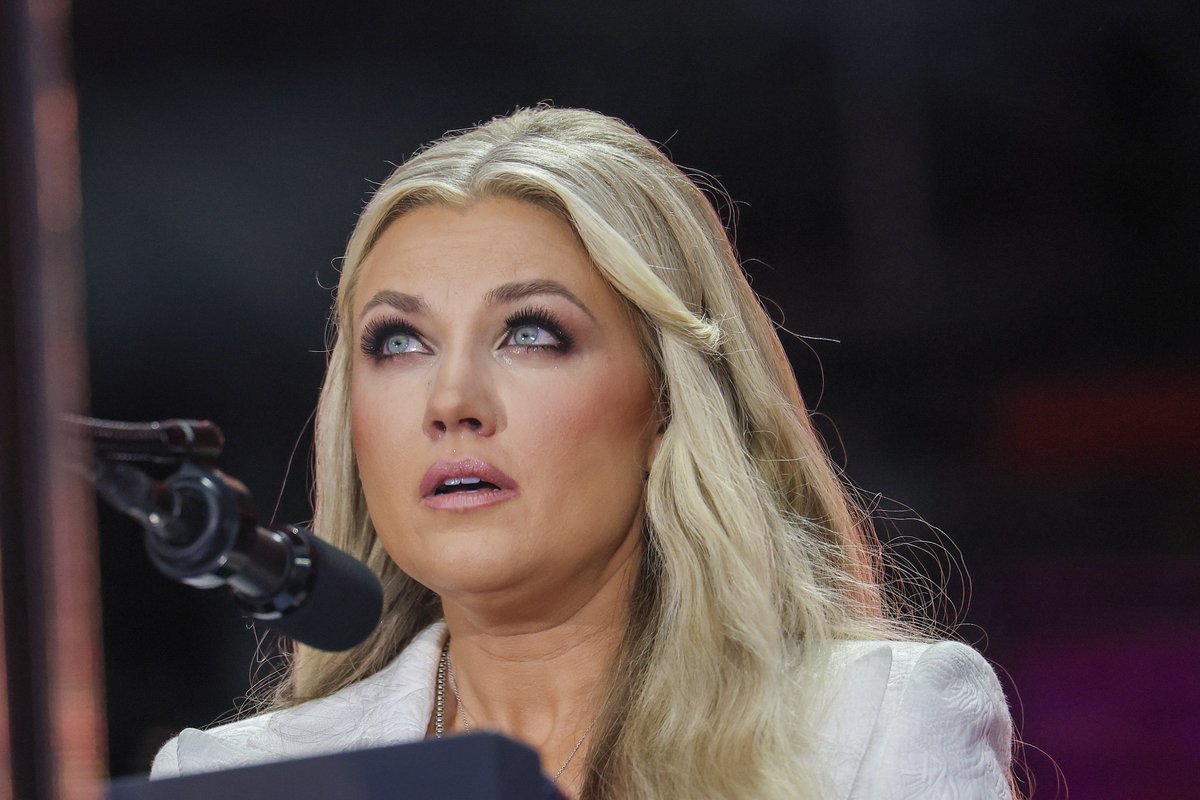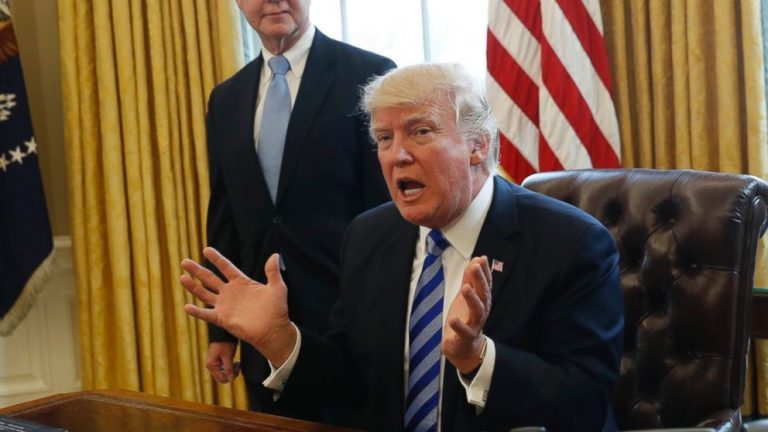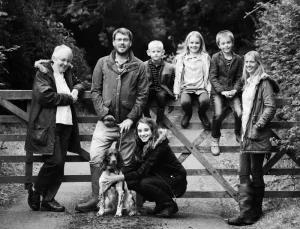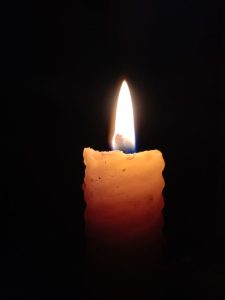The shock of losing a spouse in an instant is something few people ever truly understand, yet millions have now witnessed one woman try to put that devastation into words. In the weeks since her husband was killed at a campus speaking event, she has slowly begun opening up about the moment everything changed, what ran through her mind in the chaos, and the dreams for their family that will now remain unfulfilled.
Her appearance on The Megyn Kelly Show marked one of the most emotional and revealing interviews she has given since the shooting. Calm at first but visibly grieving, she explained that the moment she learned of the attack remains carved into her memory with painful clarity. The phone call, the instinctive sense that something was wrong, the desperate hope for a miracle—all of it resurfaced as she described what happened.
She had spent the morning at a Phoenix hospital visiting her mother. Her husband had left earlier, heading to a debate event where he was scheduled to speak. It should have been an ordinary day, separated only by routine responsibilities. But at 11:23 a.m., the call came—one she immediately knew was not ordinary, not routine, not fixable. It was from her husband’s assistant. Before she even answered, she felt the dread settle.
She said she sensed instantly that something catastrophic had happened. That instinct proved right. Moments later, she learned her husband had been shot in the neck during the event, collapsing as attendees rushed to help. What she did next—and the thoughts that flooded her mind—became the most widely shared part of her interview.
When Megyn Kelly asked her if she and her husband had planned on having more children, the widow revealed a quiet dream they had both held close: they had wanted four. With two babies already at home, they had imagined a larger family, full of noise, love, and shared chaos. That dream felt even more precious in hindsight.
But then she admitted something even more heartbreaking. In the seconds after hearing her husband had been shot, she began praying—not only for him to live, but for something else, something she hoped might still bring light into the darkness.
It was in that moment that Erika Kirk, now a widow at 37, said she prayed she might be pregnant. “I was praying to God that I was pregnant when he got murdered,” she told Kelly. Her voice shook as she said it. It was not a thought born out of denial or confusion, but out of pure longing—for a part of him to remain, for a piece of their life together to continue, for the future they wanted not to be erased entirely in one violent moment.
Kelly admitted she had wondered the same—whether a final blessing, unexpected but powerful, might emerge out of the tragedy. The widow nodded, wiping her eyes as she explained what she felt: that having another child, even under such heart-shattering circumstances, would have been “the ultimate blessing out of this catastrophe.”
Her comments resonated deeply with the audience, many of whom have watched her navigate a public grief that was never supposed to be hers. With less than two months having passed, she said she is still trying to process the shock while caring for their two young children—just one and three years old. Too young to understand what happened, they continue living their ordinary childhood routines, unaware of how drastically their lives changed.
“One day, they’ll find out,” she said. “Right now they’re just little loves. But one day they’ll find out that they’re Charlie Kirk’s children, and they’ll know what that means.”
The audience applauded, moved by her strength and the weight of her words. During the memorial following the assassination, the couple’s children were placed at the very center of the tribute, a visual reminder of both unbearable loss and the life that must continue.
Throughout the interview, she shared how often she now reflects on the fragility of time—especially for young couples who keep postponing dreams, assuming the future will always wait for them. She urged those listening not to delay building families if they desire them.
“You can always have a career,” she said. “You can always go back to work. But you can never just go back to having children.” It was advice shaped by tragedy, spoken softly yet with unmistakable urgency.
She described how quickly children grow, how swiftly moments pass, and how easily one can take for granted the days that feel ordinary—until they are gone. Her message landed with force: life does not guarantee time, and the loss of her husband has made that truth unavoidably real.
Near the end of the conversation, Megyn Kelly shifted to something many wondered privately: whether the tragedy had shaken her faith. As a Catholic herself, Kelly asked gently if the widow felt anger toward God after the event in Orem, Utah.
Her answer came slowly, but with resolve. She said she understood why people might expect her to feel that way. She acknowledged that grief can twist itself into bitterness if allowed. But she made clear she did not want to let darkness consume her.
“The enemy would love for me to be angry,” she said. “He would love it because it would distract me from building what Charlie entrusted to me.” The responsibilities she now bears—raising their children, helping lead the organization her husband believed in so deeply, and carrying forward what they planned to build together—are, she said, too important to abandon to despair.
She sees her faith not as something weakened by loss, but as the source of strength keeping her steady.
In the days after the assassination, as police searched for the alleged 22-year-old shooter, the widow said her mind was not consumed by vengeance or rage. Instead, she remained focused on her children—including the possibility of the child she prayed might still exist. That brief hope became a symbol in her mind of what she and her husband wanted most: a full, rich family life, shaped by love rather than fear.
Though she eventually learned she was not pregnant, she says she still sees the idea of expansion—a larger family—as part of the life they dreamed of. The tragedy, she insists, will not stop her from honoring those dreams.
Throughout the hour-long conversation, it became clear that the widow’s grief is still raw, still fresh, still breaking in waves. Yet it is equally clear that she is determined to remain standing, not simply because she must, but because her husband had believed in her ability to do so. She speaks of him often not just as the public figure many knew, but as the man she loved, the father of her children, the partner she planned a lifetime with.
What remains now is the work of rebuilding—emotionally, practically, spiritually. She says she intends to pour herself into raising her children with the values their father cherished, ensuring they grow up understanding who he was and what he stood for. One day, when they are old enough, she will tell them everything. For now, she simply holds them close, grateful for the two blessings she still has.
In the end, the widow’s message on the Megyn Kelly stage was not simply a story of loss, but a reminder about life’s urgency, family’s irreplaceable value, and the strength a person can show when every part of their heart is breaking.
Her husband’s absence is a wound that will never fully close, but her determination to honor his legacy—and the family they built together—remains unshaken.

Emily Johnson is a critically acclaimed essayist and novelist known for her thought-provoking works centered on feminism, women’s rights, and modern relationships. Born and raised in Portland, Oregon, Emily grew up with a deep love of books, often spending her afternoons at her local library. She went on to study literature and gender studies at UCLA, where she became deeply involved in activism and began publishing essays in campus journals. Her debut essay collection, Voices Unbound, struck a chord with readers nationwide for its fearless exploration of gender dynamics, identity, and the challenges faced by women in contemporary society. Emily later transitioned into fiction, writing novels that balance compelling storytelling with social commentary. Her protagonists are often strong, multidimensional women navigating love, ambition, and the struggles of everyday life, making her a favorite among readers who crave authentic, relatable narratives. Critics praise her ability to merge personal intimacy with universal themes. Off the page, Emily is an advocate for women in publishing, leading workshops that encourage young female writers to embrace their voices. She lives in Seattle with her partner and two rescue cats, where she continues to write, teach, and inspire a new generation of storytellers.



